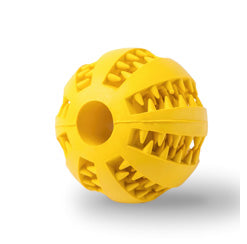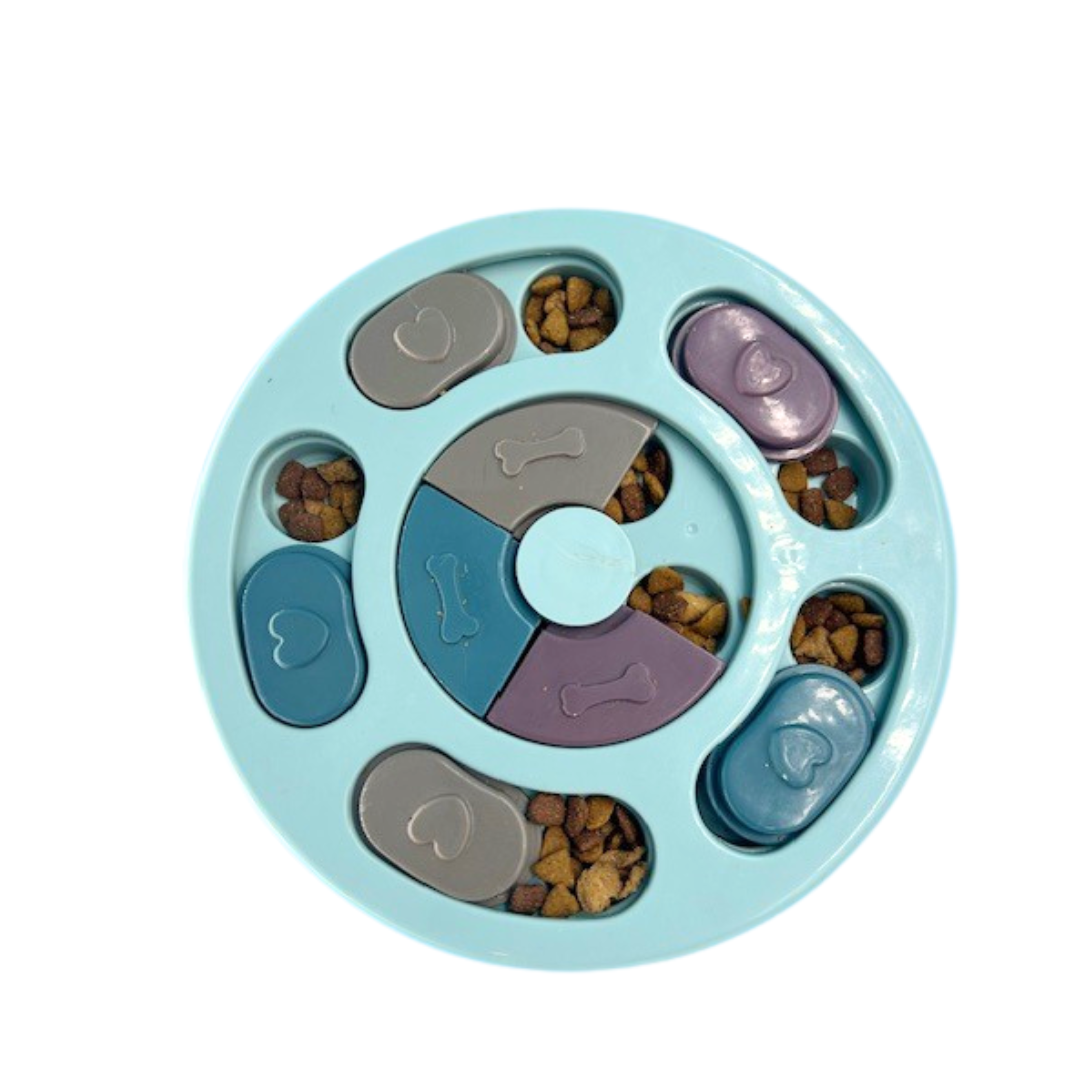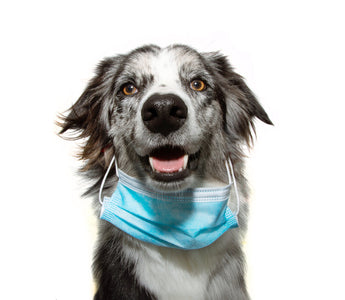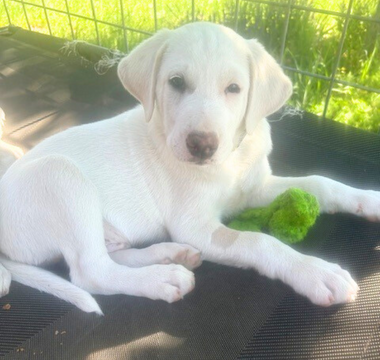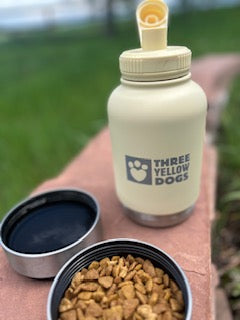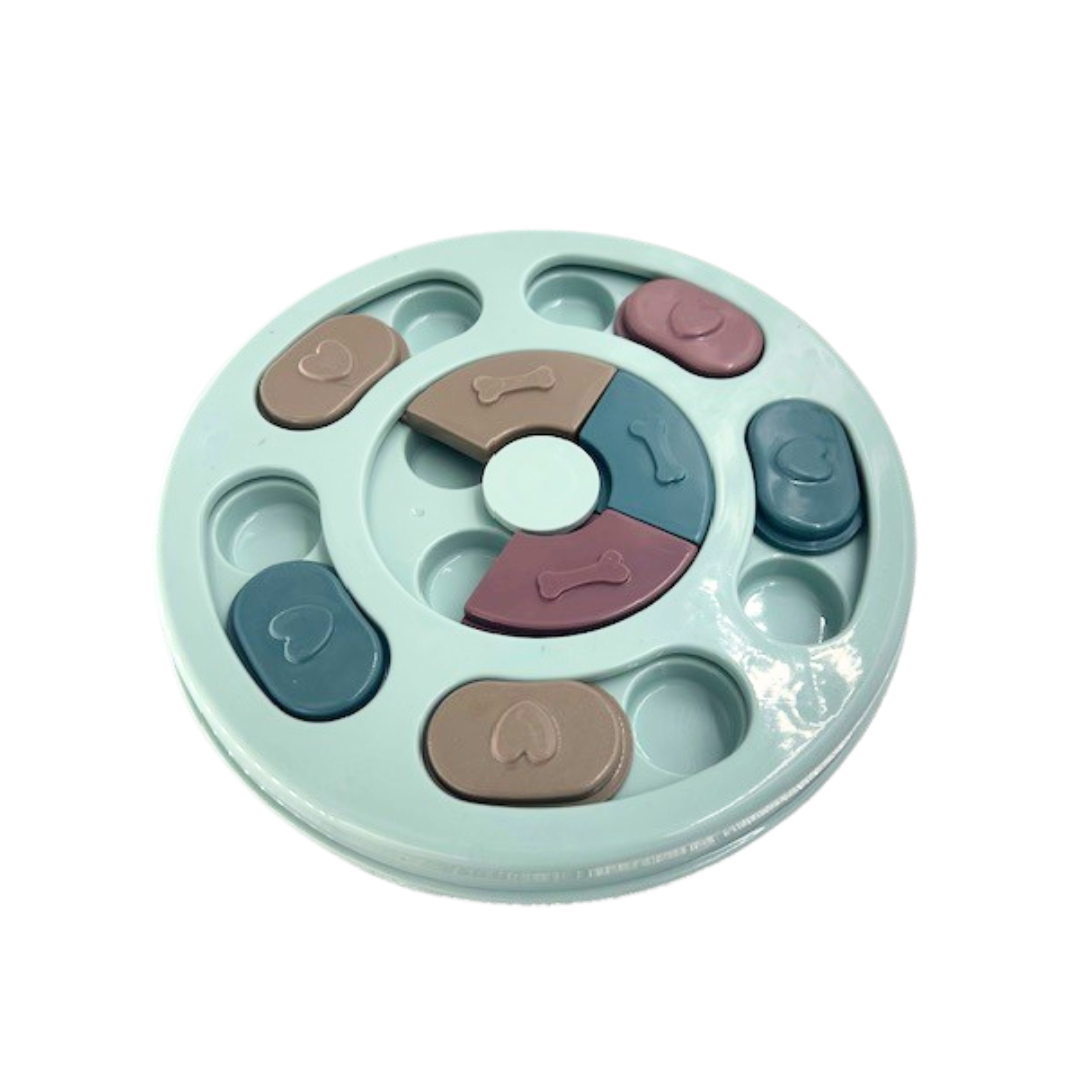Last week, I noticed that one of our dogs, Maggie, had a mild cough. I only heard it a couple of times, so I didn’t think much of it. We go on long walks every day, and I figured she might have pulled too hard on her leash and irritated her throat. If not that, then maybe it was the weather, it’s usually very dry where we live, but the week before had been unusually cool and damp.
However, a few days later, something strange happened: our foster puppy started coughing too. That worried me. He never even leaves the yard, so how could he have picked something up?
By the next day, the cough had turned into a dry, hacking, almost honking sound. At first, I thought maybe he had something stuck in his throat. But as it continued, I knew it wasn’t just a harmless quirk.
It turned out to be kennel cough.
In this blog, I’ll cover what kennel cough is, the symptoms to look out for, treatment and recovery, how long it’s contagious, and most importantly, how to prevent it.
What Is Kennel Cough?
Kennel cough (also known as canine infectious respiratory disease complex) is a highly contagious respiratory illness in dogs. It’s caused by a mix of bacteria and viruses, the most common being Bordetella bronchiseptica, canine parainfluenza virus, and canine adenovirus-2.
Dogs can catch kennel cough through direct contact, shared water bowls or toys, or simply by breathing in airborne droplets from another coughing dog.
💡 Pro Tip: Even if your dog doesn’t go to kennels or dog parks, they can still catch kennel cough. The germs can linger in the environment or hitch a ride on objects.
Symptoms to Watch For
The hallmark sign is a persistent, honking cough that sounds very different from a sneeze or reverse sneeze. Other common symptoms include:
-
Gagging or retching at the end of a coughing spell
-
Mild nasal discharge
-
Watery eyes
-
Slight lethargy
In our case, coughing was the only symptom. Still, it’s important to stay observant, especially with puppies, senior dogs, and those with compromised immune systems.
In mild cases, dogs often maintain their appetite and energy. In severe cases, kennel cough can progress to pneumonia. Warning signs include fever, loss of appetite, and difficulty breathing.
💡 Pro Tip: If your dog develops a fever, stops eating, or struggles to breathe, seek veterinary care immediately.
Treatment and Recovery
Most cases of kennel cough resolve on their own within 1–3 weeks. Veterinary treatment may include cough suppressants to keep dogs comfortable, and sometimes antibiotics if a bacterial infection is suspected.
At home, supportive care makes all the difference:
-
Use a harness instead of a collar to avoid throat irritation
-
Provide plenty of rest and hydration
-
Keep their space warm, calm, and free of smoke or strong odors
-
Isolate them from other dogs until fully recovered
💡 Pro Tip: Keep your dog away from social settings until at least two weeks after symptoms end to avoid spreading it.
Contagious Period of Kennel Cough
-
Incubation (3–10 days): Dogs may already be contagious before symptoms appear.
-
During illness: Highly contagious while coughing, sneezing, or gagging.
-
After recovery: Even after coughing stops, dogs can shed germs for 2–3 weeks (sometimes longer in vulnerable dogs).
Prevention
Prevention is the best approach. The Bordetella vaccine (often combined with parainfluenza and adenovirus-2) reduces the severity and duration of illness.
Other key prevention steps include:
-
Good hygiene and proper ventilation in kennels/daycares
-
Limiting exposure to sick dogs
-
Regular vet visits to stay current on vaccines
💡 Pro Tip: Many boarding facilities and daycares require the Bordetella vaccine. Even if your dog doesn’t frequent these places, vaccination is a smart choice for active or social pups.
Final Thoughts
I’m still not entirely sure how our foster puppy caught kennel cough. We don’t take our dogs to parks or kennels, and our neighbors all live on large lots, so it’s rare to even pass another dog on our walks. Maybe Maggie sniffed where an infected dog had been and brought it home, or maybe the virus traveled farther than I realized. Considering how contagious it is, I may never know for sure. It is worth noting that our three family dogs did not need to be treated and in fact we never heard a single cough from two out of the three. Proving that the Bordetella vaccine had done its job.
When my dogs first started coughing, I was worried. But now I know kennel cough is something most pet parents will face at some point. The good news? With care, rest, and a little patience, it usually passes without causing lasting harm.
Always remember: stay observant, and if you notice anything unusual with your pup, reach out to your veterinarian. Honestly, the timing of our puppy’s illness felt a little ironic,it reminded me that, just like kids, our fur babies get colds from time to time too. Welcome back to school!!
Quick-Reference Checklist: Kennel Cough
Symptoms
✔ Persistent honking cough
✔ Gagging/retching after coughing
✔ Watery eyes or mild nasal discharge
✔ Slight lethargy (but still eating/playing)
❌ Red flags: fever, loss of appetite, labored breathing
Treatment
✔ Rest and hydration
✔ Cough suppressants (if prescribed by vet)
✔ Harness instead of collar
✔ Calm, clean environment
✔ Isolate from other dogs
Prevention
✔ Bordetella vaccine (often combined with other respiratory vaccines)
✔ Good ventilation and hygiene in kennels/daycares
✔ Limit exposure to sick dogs
✔ Stay alert to early symptoms






